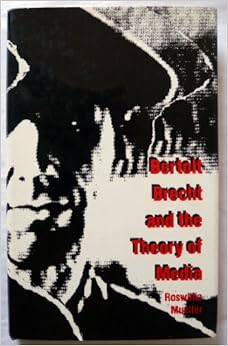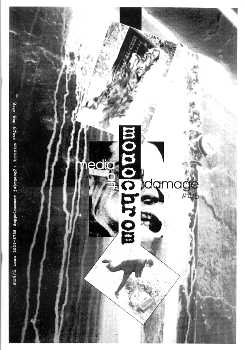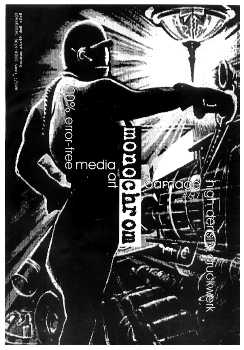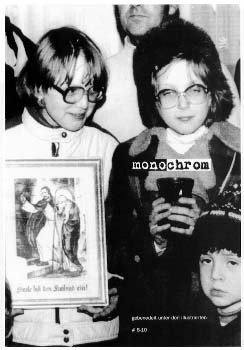Wolfgang Ernst: Digital Memory and the Archive (2012)
Filed under book | Tags: · archive, art, communication, computing, culture, data, history, information, internet, knowledge, machine, media, media archeology, media studies, media theory, memory, photography, radio, sound, storage, technology, television, temporality, time

“In the popular imagination, archives are remote, largely obsolete institutions: either antiquated, inevitably dusty libraries or sinister repositories of personal secrets maintained by police states. Yet the archive is now a ubiquitous feature of digital life. Rather than being deleted, e-mails and other computer files are archived. Media software and cloud storage allow for the instantaneous cataloging and preservation of data, from music, photographs, and videos to personal information gathered by social media sites.
In this digital landscape, the archival-oriented media theories of Wolfgang Ernst are particularly relevant. Digital Memory and the Archive, the first English-language collection of the German media theorist’s work, brings together essays that present Ernst’s controversial materialist approach to media theory and history. His insights are central to the emerging field of media archaeology, which uncovers the role of specific technologies and mechanisms, rather than content, in shaping contemporary culture and society.
Ernst’s interrelated ideas on the archive, machine time and microtemporality, and the new regimes of memory offer a new perspective on both current digital culture and the infrastructure of media historical knowledge. For Ernst, different forms of media systems—from library catalogs to sound recordings—have influenced the content and understanding of the archive and other institutions of memory. At the same time, digital archiving has become a contested site that is highly resistant to curation, thus complicating the creation and preservation of cultural memory and history. ”
Edited and with an Introduction by Jussi Parikka
Publisher University of Minnesota Press, 2012
Volume 39 of Electronic Mediations
ISBN 0816677670, 9780816677672
265 pages
Reviews: Liam Cole Young (Reviews in Cultural Theory, 2013), Peter Ward (Information & Culture, 2014).
For more from Wolfgang Ernst see Monoskop wiki.
Comment (0)Roswitha Mueller: Bertolt Brecht and the Theory of Media (1989)
Filed under book | Tags: · aesthetics, cinema, film, film theory, media, media theory, opera, politics, radio, theatre

Bertolt Brecht spent a career puncturing artistic illusion while casting a spell as an innovator that has continued since his death in 1956. Best known to theater goers for “The Threepenny Opera,” “Mother Courage and her Children,” “The Caucasian Chalk Circle” and other production, the great playwright was, in fact, a man of all media. He was interested in radio and the cinema as soon as they appeared in Europe and brought to them, as well as to the stage, a dramatic theory so radical and influential that it has come to be known by the adjective “Brechtian.”
Publisher University of Nebraska Press, Lincoln & London, 1989
Modern German Culture and Literature series
ISBN 0803231326, 9780803231320
149 pages
Reviews: Katie Trumpener, Susan Bennett (Theatre Research International).
PDF (no OCR)
Comment (0)monochrom, 3-10 (1994-1998) [German]
Filed under magazine | Tags: · art, conspiracy, copyleft, copyright, media, media art, media culture, net culture, philosophy, politics, science fiction, software, subversion, surveillance, tactical media, technology




The mouthpiece of an international art-technology-philosophy collective founded in 1993, with its headquarters at Museumsquartier in Vienna.
Editor-in-chief: Johannes Grenzfurthner
Publisher Monochrom, Vienna
ISSN 1024-6738
Authors
Monochrom on Wikipedia
PDF (No. 3: media dings, 1994/95, 68 pp)
PDF (No. 4-5: media art damage, 1995/96, 104 pp)
PDF (No. 6-7: 100% error free high-density druckwerk, 1997, 112 pp)
PDF (No. 8-10: gebenedeit unter den illustrierten, 1998, 180 pp)

